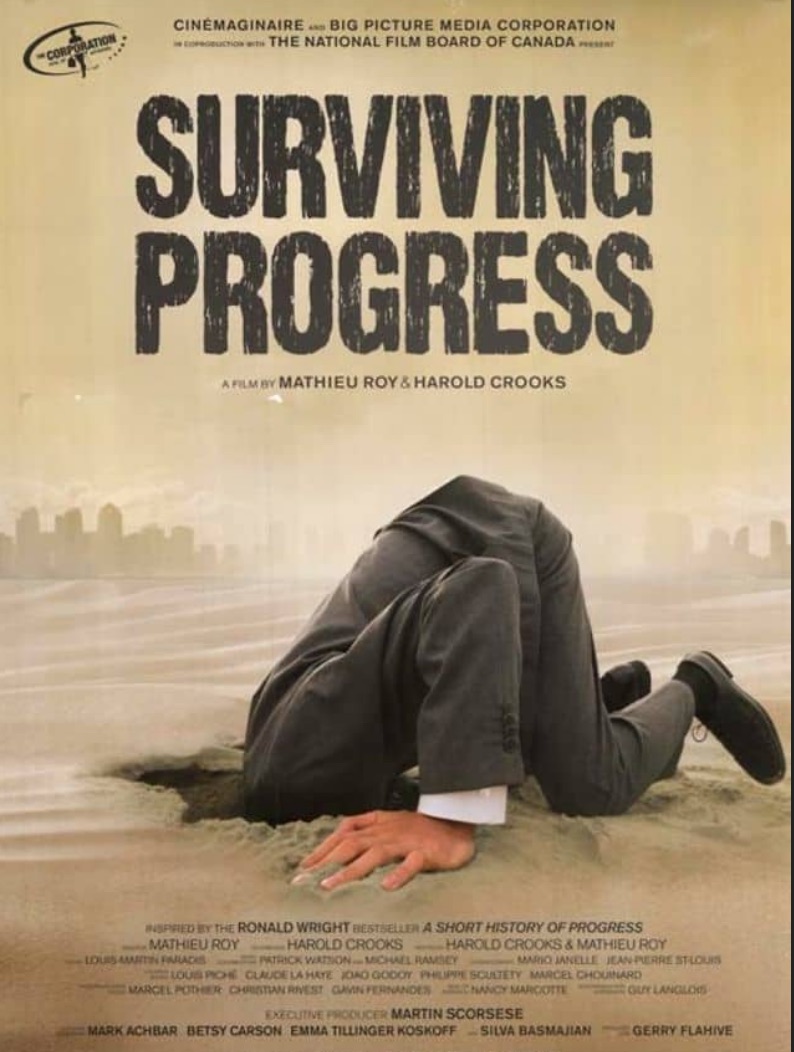‘Surviving Progress’, Film screening and Discussion

The New School’s Centennial Festival and the Tishman Environment and Design Center will be hosting a screening of Surviving Progress, a documentary film written and directed by Mathieu Roy and Harold Crooks.
From the filmmakers:
‘Technological advancement, economic development, population increase – are they signs of a thriving society? Or too much of a good thing? Based on the best-selling book A Short History of Progress, this provocative documentary explores the concept of progress in our modern world, guiding us through a sweeping but detailed survey of the major “progress traps” facing our civilization in the arenas of technology, economics, consumption, and the environment.
Featuring powerful arguments from such visionaries as Jane Goodall, Margaret Atwood, Stephen Hawking, Craig Venter, Robert Wright, Michael Hudson, and Ronald Wright, this enlightening and visually spectacular film invites us to contemplate the progress traps that destroyed past civilizations and that lie treacherously embedded in our own. Leading critics of Wall Street, cognitive psychologists, and ecologists lay bare the consequences of progress-as-usual as the film travels around the world – from a burgeoning China to the disappearing rainforests of Brazil to a chimp research lab in New Iberia, Louisiana – to construct a shocking overview of the way our global economic system is eating away at our planet’s resources and shackling entire populations with poverty.
Providing an honest look at the risks and pitfalls of running 21st Century “software” (our accumulated knowledge) on 50,000-year-old “hardware” (our primate brains), Surviving Progress offers a challenge: to prove making apes smarter was not an evolutionary dead end.
Following the screening, Harold Crooks will be joined by Nadia Elrokhsy, Associate Professor of Ecological Design, and invite respondents to reflect and expand on the challenge of overconsumption through conversation. If our identity is based on a certain set of facts, how might a new identity take root, bourne from a different set of facts? How can we build a bridge between old and new? Through systems thinking we will attempt to build bridges between issues, fields, disciplines? Join us for the viewing and a conversation. Hope begins and is sustained through conversation.